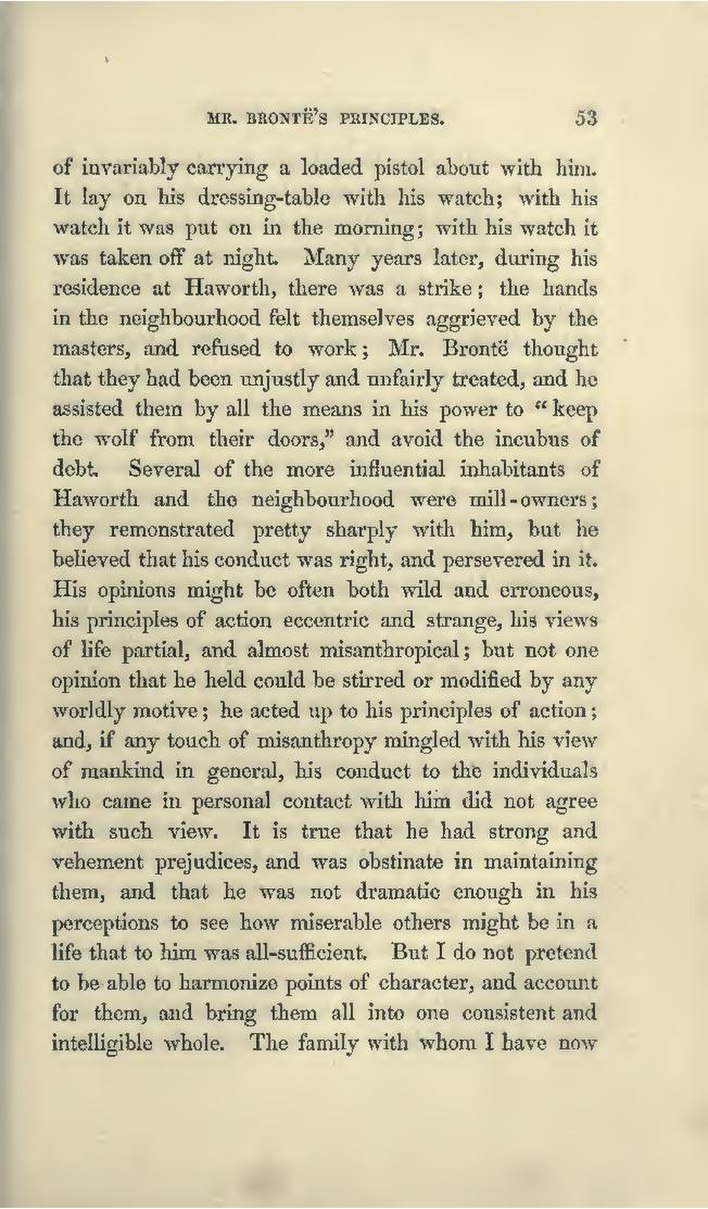of invariably carrying a loaded pistol about with him. It lay on his dressing-table with his watch; with his watch it was put on in the morning; with his watch it was taken off at night. Many years later, during his residence at Haworth, there was a strike; the hands in the neighbourhood felt themselves aggrieved by the masters, and refused to work; Mr. Brontë thought that they had been unjustly and unfairly treated, and he assisted them by all the means in his power to "keep the wolf from their doors," and avoid the incubus of debt. Several of the more influential inhabitants of Haworth and the neighbourhood were mill-owners; they remonstrated pretty sharply with him, but he believed that his conduct was right, and persevered in it. His opinions might be often both wild and erroneous, his principles of action eccentric and strange, his views of life partial, and almost misanthropical; but not one opinion that he held could be stirred or modified by any worldly motive; he acted up to his principles of action; and, if any touch of misanthropy mingled with his view of mankind in general, his conduct to the individuals who came in personal contact with him did not agree with such view. It is true that he had strong and vehement prejudices, and was obstinate in maintaining them, and that he was not dramatic enough in his perceptions to see how miserable others might be in a life that to him was all-sufficient. But I do not pretend to be able to harmonize points of character, and account for them, and bring them all into one consistent and intelligible whole. The family with whom I have now
